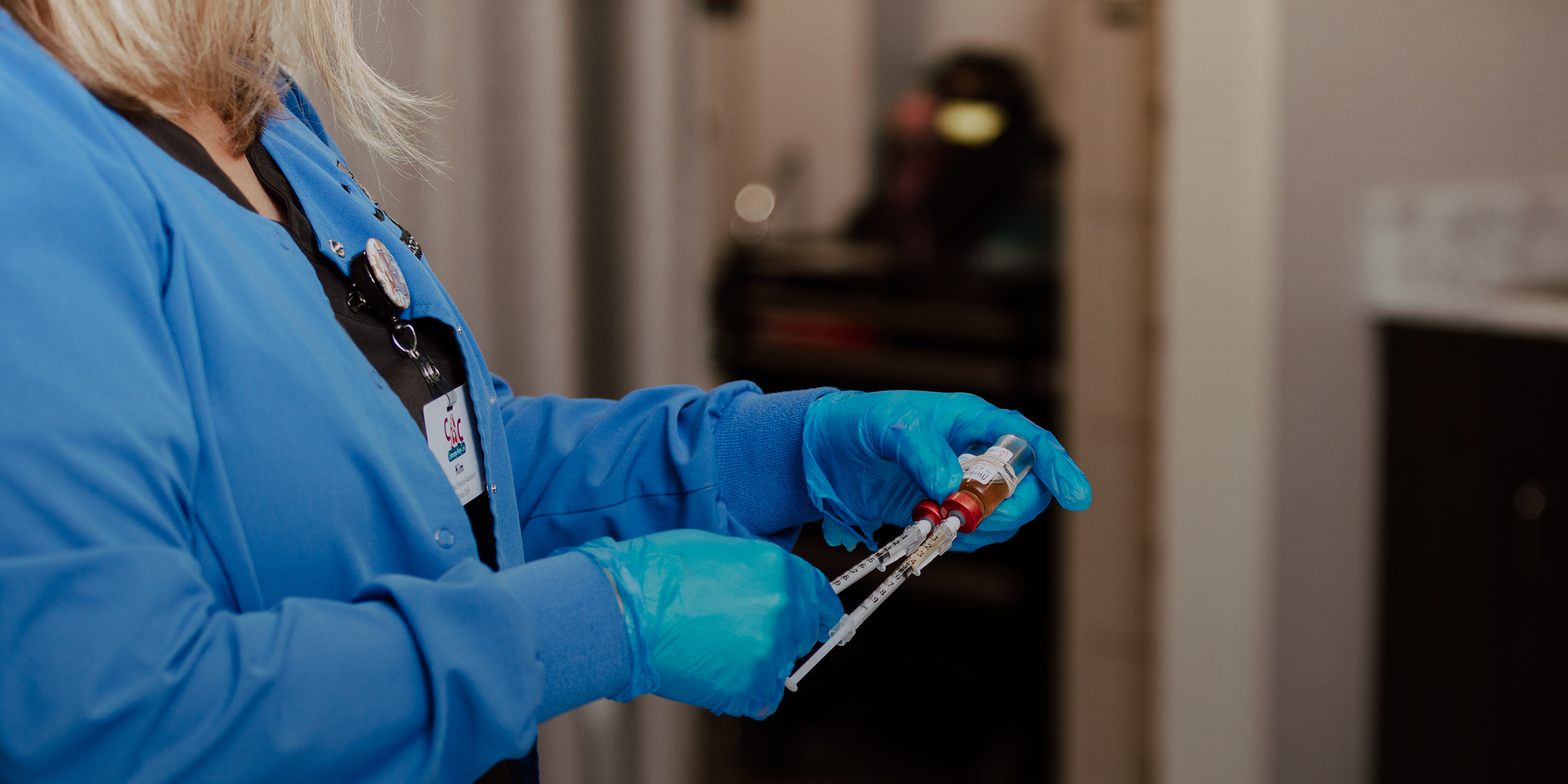Immunodeficiency

What Are Immune Disorders?
Primary immunodeficiency disorders — also called primary immune disorders or primary immunodeficiency — weaken the immune system, allowing infections and other health problems to occur more easily.
What are immunodeficiencies?

Many people with primary immunodeficiency are born missing some of the body's immune defenses or with the immune system not working properly, which leaves them more susceptible to germs that can cause infections.
Some forms of primary immunodeficiency are so mild they can go unnoticed for years. Other types are severe enough that they're discovered soon after an affected baby is born.
Treatments can boost the immune system in many types of primary immunodeficiency disorders. Research is ongoing, leading to improved treatments and enhanced quality of life for people with the condition.
What are the types of immunodeficiency that CAC treats?

- Specific or Selective Antibody Deficiency: Selective Antibody Deficiency (SAD), also known as specific antibody deficiency or partial antibody deficiency with impaired polysaccharide responsiveness, is a primary immune deficiency disease (PIDD) resulting from an individual’s inability to make antibodies to polysaccharide antigens found within encapsulated bacteria.
- Common Variable Immunodeficiency: CVID is also known as hypogammaglobulinemia, which means low levels of immunoglobulins in the bloodstream. Because of the decreased levels of antibodies (immunoglobulins), people with CVID are prone to recurrent infections.
- IgA Deficiency: Selective IgA deficiency is an immune system condition in which you lack or don't have enough immunoglobulin A (IgA), a protein that fights infection (antibody). Most people with selective IgA deficiency don't have recurrent infections.
- Severe Combined Immunodeficiency (SCID): Severe combined immunodeficiency (SCID) is a group of rare disorders caused by mutations in different genes involved in the development and function of infection-fighting immune cells. Infants with SCID appear healthy at birth but are highly susceptible to severe infections.
- Alpha 1 Antitrypsin Deficiency: Alpha-1 antitrypsin deficiency is an inherited disorder that may cause lung disease and liver disease.
- Chronic Granulomatous Disease: Chronic granulomatous disease (CGD) is an inherited disorder that occurs when a type of white blood cell (phagocyte) that usually helps your body fight infections doesn't work properly. As a result, the phagocytes can't protect your body from bacterial and fungal infections.
Immunodeficiency Symptoms
One of the most common signs of primary immunodeficiency is having infections that are more frequent, longer lasting or harder to treat than are the infections of someone with a normal immune system. You may also get infections that a person with a healthy immune system likely wouldn't get (opportunistic infections).
Signs and symptoms differ depending on the type of primary immunodeficiency disorder, and they vary from person to person.
Signs and symptoms of immunodeficiency can include:
- Frequent and recurrent pneumonia, bronchitis, sinus infections, ear infections, meningitis or skin infections
- Inflammation and infection of internal organs
- Blood disorders, such as low platelet counts or anemia
- Digestive problems, such as cramping, loss of appetite, nausea and diarrhea
- Delayed growth and development
- Autoimmune disorders, such as lupus, rheumatoid arthritis or type 1 diabetes
When to see a doctor
If your child or you have frequent, recurrent or severe infections or infections that don't respond to treatments, talk to your doctor. Early diagnosis and treatment of primary immune deficiencies can prevent infections that can cause long-term problems.
Make an Appointment
Schedule your appointment with our board certified physicians and professional team of allergy specialists today.
